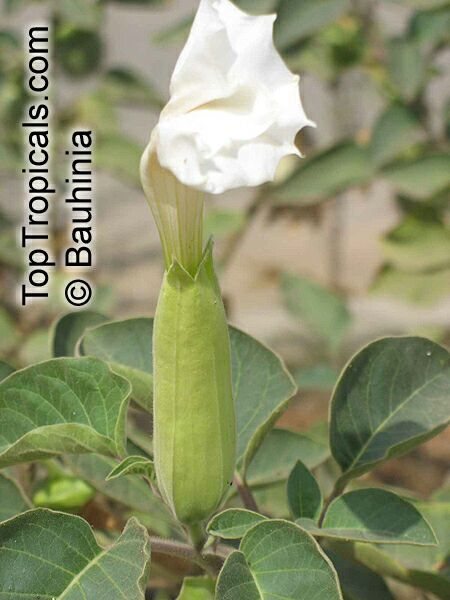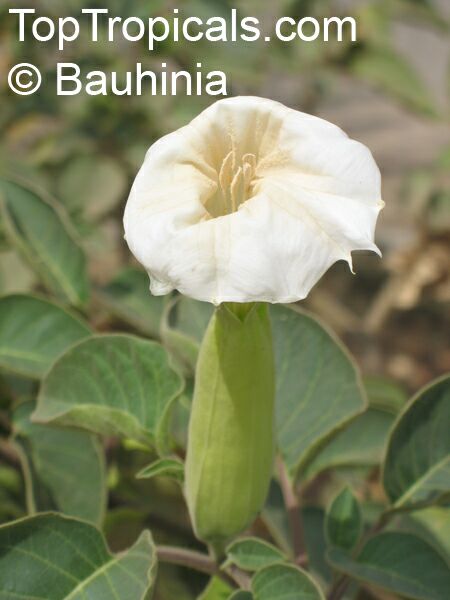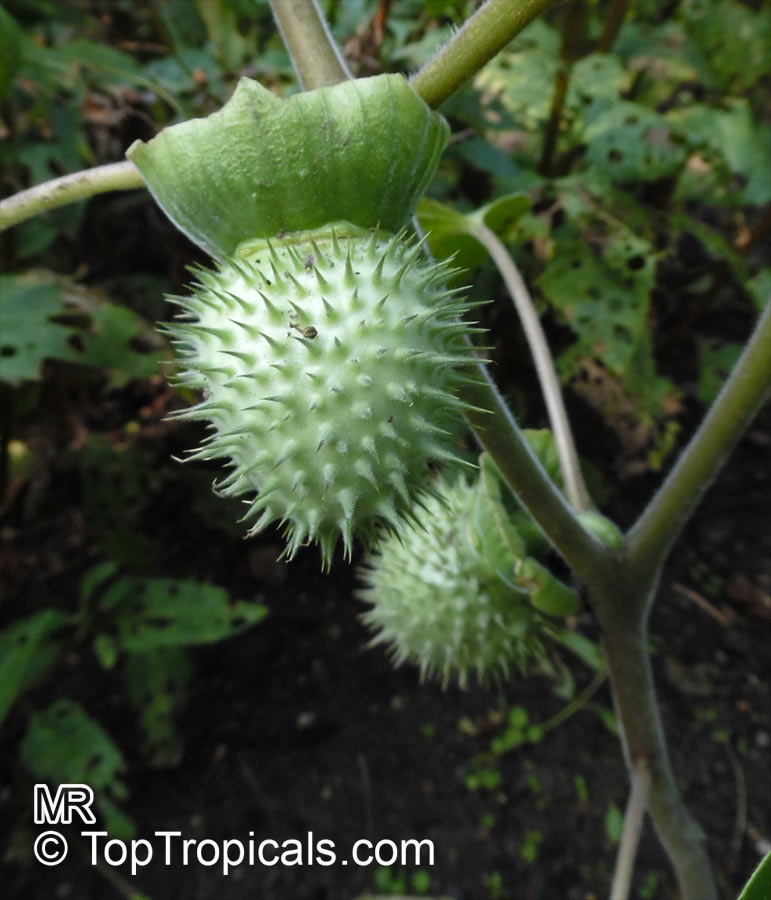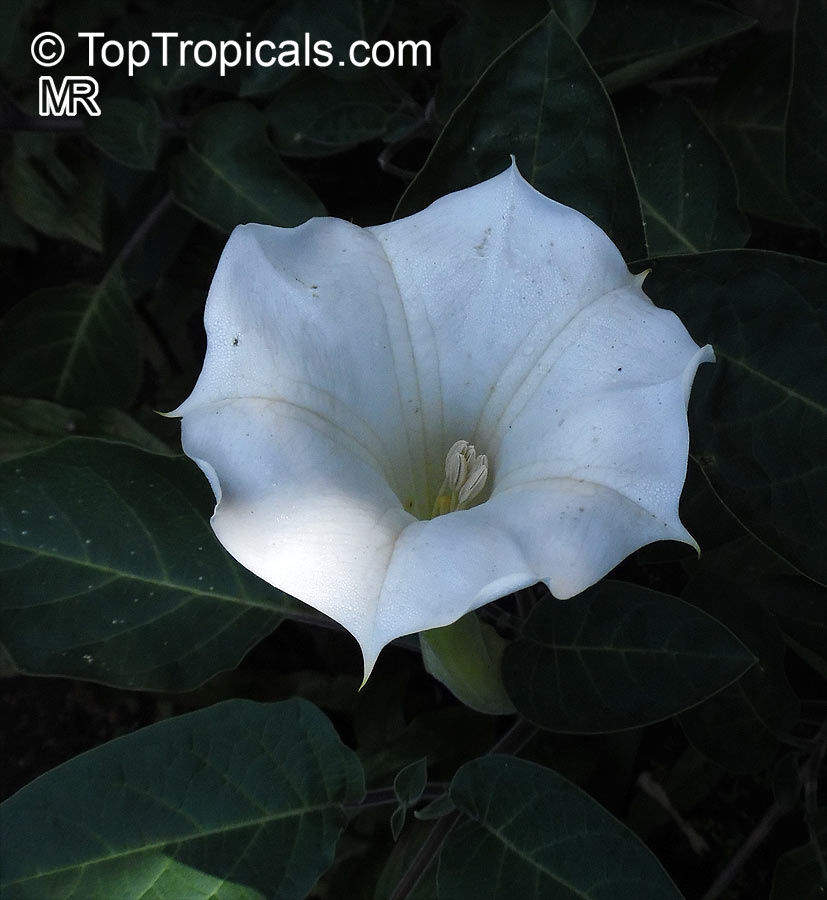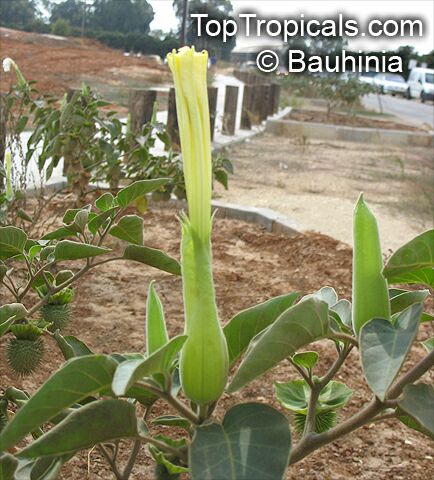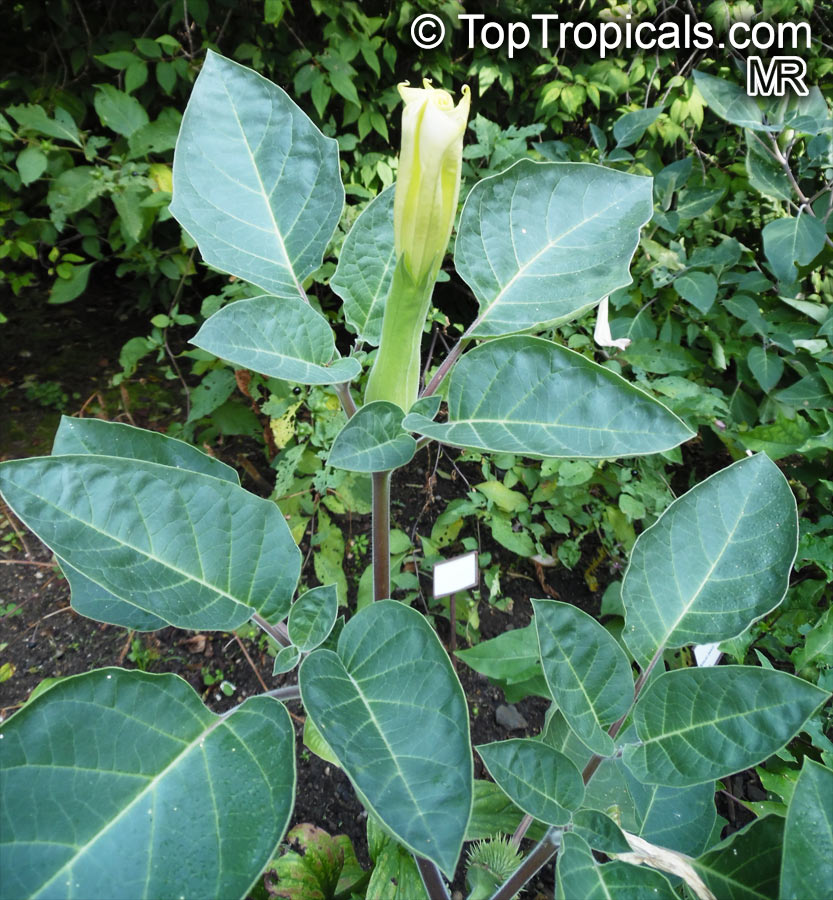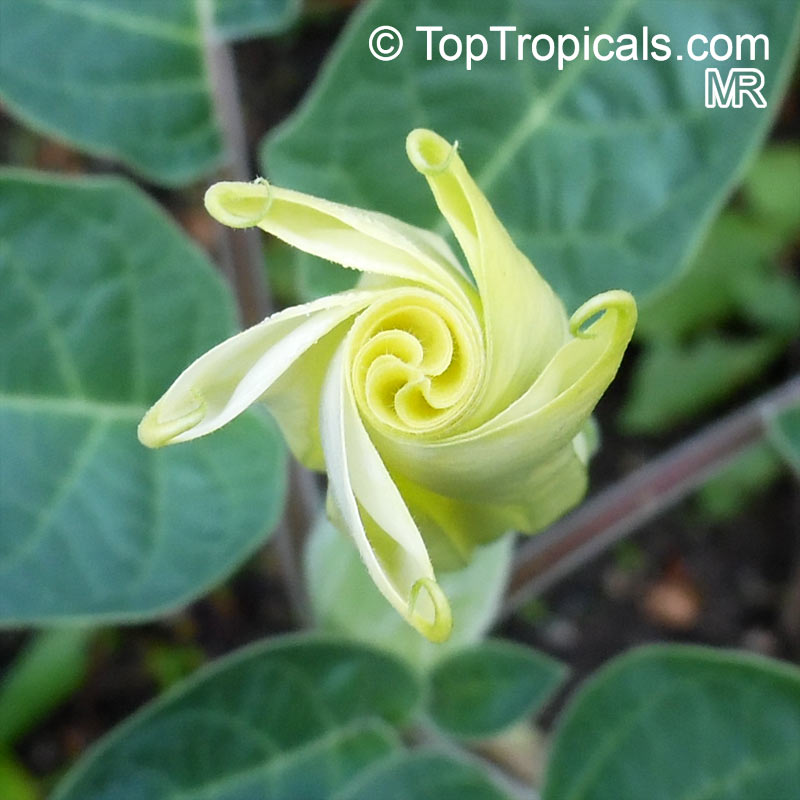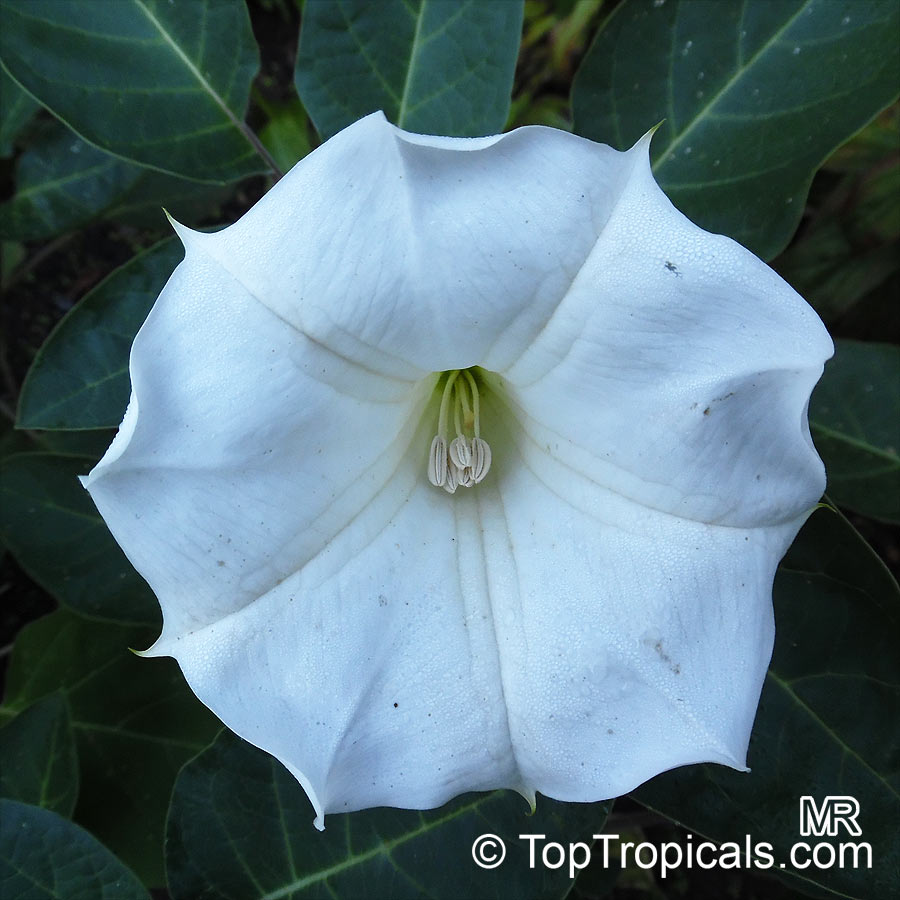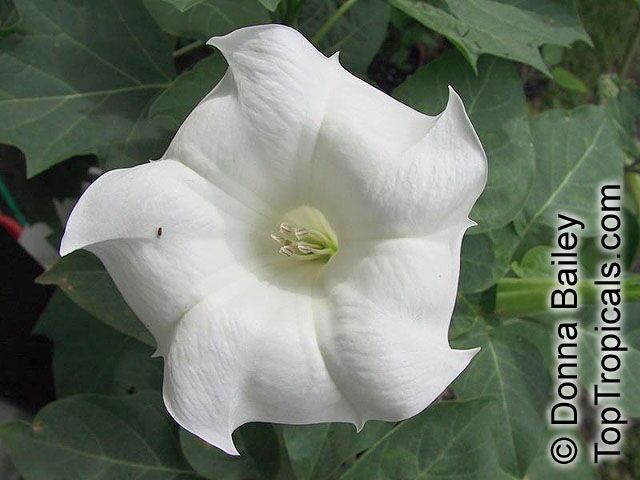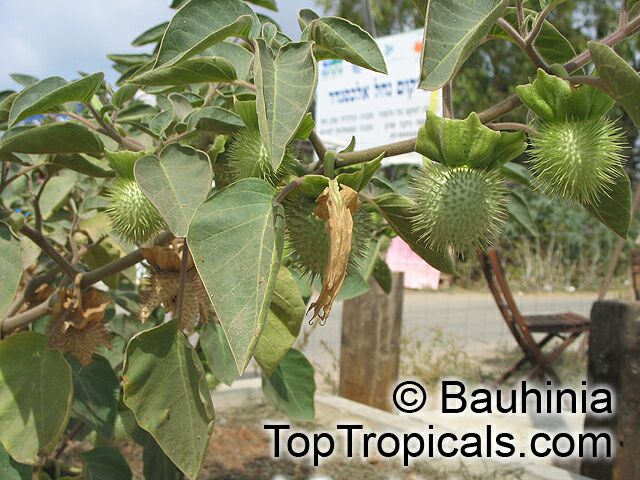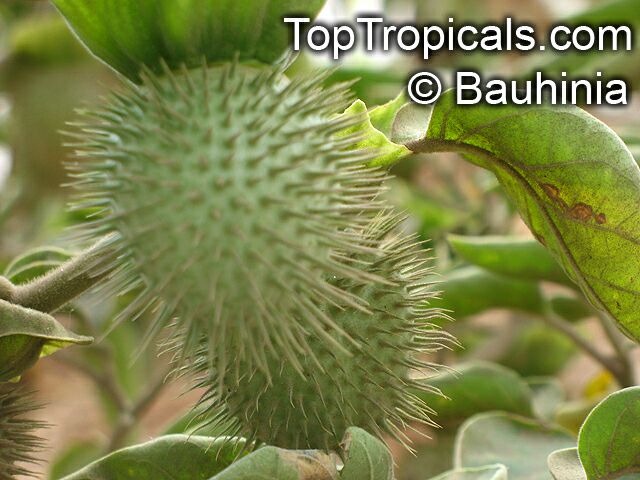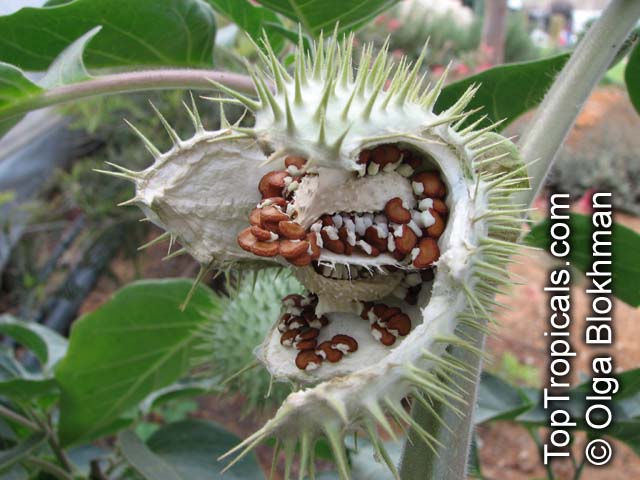Datura inoxia (Thorn Apple)
Botanical names: Datura inoxia, Datura innoxia, Datura meteloides
Common names: Thorn Apple, Moonflower, Toloache, Jimson Weed, Angel's Trumpet, Stinkweed, Pricklyburr
Family: Solanaceae
Origin: Central America










This small shrub is native to Central America and can be found growing in USDA Zones 9-11. It is a perennial, but it is a short-lived one and generally only grows 2-5ft in height, spreading a few feet in breadth. Its large, dark green leaves, when combined with its bright white and off-white flowers, can create an attractive ornamental garden. The flowers are incredibly fragrant and their scent can be carried for great distances when in full bloom.
They also attract pollinators such as butterflies and hummingbirds, making them a great addition to any garden that is looking for a bit more life. Datura inoxia does have a downside; it's highly toxic alkaloids, atropine, hyoscine (scopolamine), and hyoscyamine, can be dangerous if ingested. Despite this, these substances have beneficial medicinal effects, recognized in folk medicine, and later on in scientific medicine.
Datura inoxia can be grown in pots and is known to survive even in colder regions such as those in the USDA Zone 9-11. It prefers semi-shade areas and needs regular watering, though not too much - a moderate amount of water is ideal. To ensure it gets the best growth, it is important to provide adequate drainage, as this small shrub does not enjoy being in overly wet soil.
Overall, Datura inoxia is an interesting plant, as long as its potential for poisoning is taken into account. It has a great combination of attractive large leaves, white and off-white flowers, and fragrant scents, making it a great choice for any garden. It also provides a great source of food for pollinators and has the potential for medicinal uses, making it a valuable asset to any garden.
